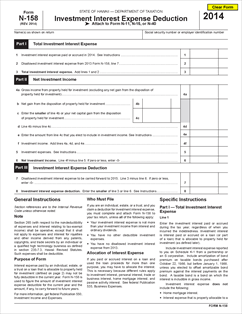Выбор для ставок пин ап казино и знакомство с правилами сайта
Рынок азартных развлечений стремительно растет, запускаются новые клубы, предлагающие огромный ассортимент игр и акций для гемблеров. Каждое заведение хочет выделиться

Auditors provide an independent assessment of financial records, which helps maintain trust and confidence among stakeholders. International accounting is essential for multinational businesses to provide accurate and comparable financial information to stakeholders across different countries. It helps companies manage the financial complexities of operating in a global market and ensures transparency and consistency in financial reporting. There are a number of types of accounting, serving a wide range of functions from tax preparation and financial statement preparation to catching white-collar criminals. To determine which type of accountant you might need, we break down the eight most common types of accounting from tax and cost accounting to international and forensic accounting. This type of accounting is generally the most comprehensive, with public accounting businesses tending to specialise in various accounting areas.
Chartered accountants are specialist accountants who deal with responsibilities such as auditing, business strategy, and taxation. Compared to regular accountants, chartered accountants have completed in-depth training and passed tough examinations. Small to medium-sized businesses tend to outsource this service, whereas larger enterprises usually keep this in-house, as they have the budget and resource to hire for this role. That said, small businesses usually aren’t required to use GAAP and its accrual method. Any business that makes, buys, or sells products must how much cash can you withdraw from your bank use GAAP, according to the IRS. This specialized accounting service is trending in accounting and is becoming increasingly popular.
When the client pays the invoice, the accountant credits accounts receivables and debits cash. Double-entry accounting is also called balancing the books, as all of the accounting entries are balanced against each other. If the entries aren’t balanced, the accountant knows there must be a mistake somewhere in the general ledger.

Further, unless your background is in finance or accounting, you are apt to make mistakes that could cost both time and money. Reliable financial information is critical for business growth and success. If you are a small business owner or are otherwise self-employed, you may be handling the business’ finances yourself. However, as your business grows, so does your need for different types of accounting and financial services. This is where management use accounting information to make critical and informed decisions. Accounting data can help provide clarity and clear numbers on a number of business decisions, including day-to-day operations.
Public accountants are different from private accountants since private accountants work with one single organization, while public accountants work with a range of businesses and individuals. Our Financial Close Module is designed to create detailed month-end close plans with specific close tasks that can be assigned to construction in progress accounting various accounting professionals, reducing the month-end close time by 30%. The workspace is connected and allows users to assign and track tasks for each close task category for input, review, and approval with the stakeholders. It allows users to extract and ingest data automatically, and use formulas on the data to process and transform it. Cost accounting focuses on capturing a company’s total cost of production by assessing the variable costs at each production stage and also takes into consideration fixed costs, such as a lease expense. In this blog, we will explore 11 different types of accounting, shedding light on what each one entails and its importance in the financial landscape.
In addition, management accounting is forward-looking, devising ways to operate more efficiently while providing management with the tools and resources to form sound policies and procedures. This must be done using the standardized guidelines found in Generally Accepted Accounting Principles (GAAP) rules. These rules are set by the Financial Accounting Standards Board (FASB) and are designed to promote consistency in the reporting process, so Company A will use the same reporting methodology as Company B.
Managerial accounting also encompasses many other facets of accounting, including budgeting, forecasting, and various financial analysis tools. Essentially, any information that may be useful to management falls under this umbrella. Accountants may be tasked with recording specific transactions or working with specific sets of information. For this reason, there are several broad groups that most accountants can be grouped into. Accounting history dates back to ancient civilizations in Mesopotamia, Egypt, and Babylon.
This could be to decode fraudulent data or convert a cash accounting system to accrual accounting. Instead, financial accounting provides what is a current asset an accurate look at business performance over a specified period of time in the form of financial statements. The completed statements are provided to outside stakeholders such as investors and financial institutions. The primary purpose of financial accounting is to track, record, and ultimately report on financial transactions by generating financial statements. The three main types of accounting are management accounting, tax accounting, and financial accounting. By leveraging governmental accounting, public sector organizations can maintain public trust, ensure compliance with regulatory requirements, and make informed financial decisions that benefit the community.
Management accounting focuses on providing detailed financial and non-financial information to a company’s management team to aid in decision-making and performance evaluation. Unlike financial accounting, which is intended for external stakeholders, management accounting is used internally to drive strategic decisions. The data that is recorded during bookkeeping is not just for maintaining a record. This data can be put to further use in the hands of an accountant and later a financial analyst. An accountant can translated the bookkeeping records into financial statements while a financial analyst translates these financial statements into into meaningful conclusions for decision-making.
Рынок азартных развлечений стремительно растет, запускаются новые клубы, предлагающие огромный ассортимент игр и акций для гемблеров. Каждое заведение хочет выделиться
Bitcoin Casino Free Spins ֍ Play Btc Which have Totally free Revolves For Register Articles Clean Casino Best Bitcoin Gambling